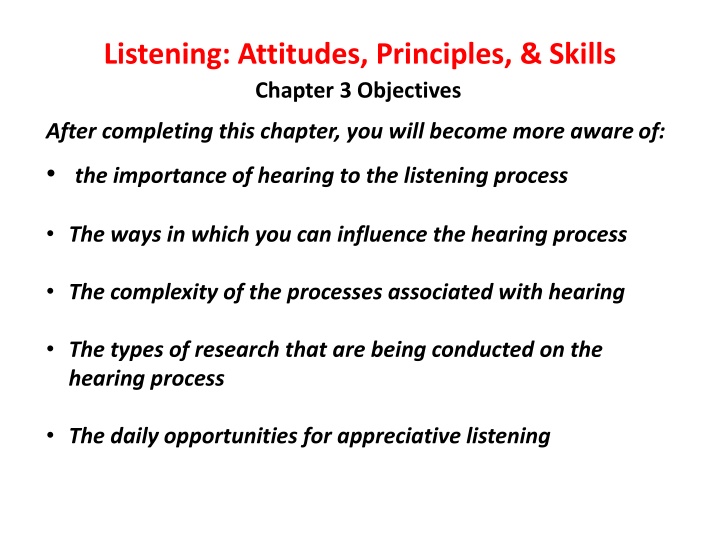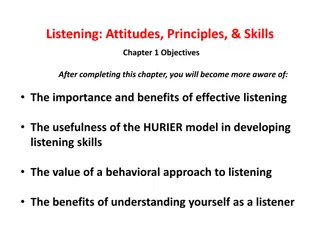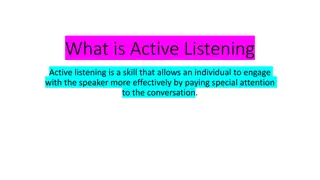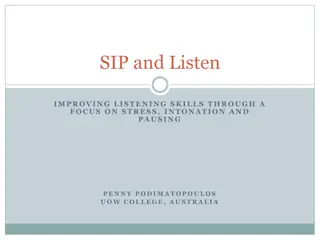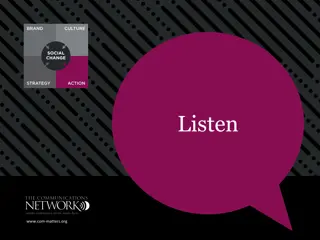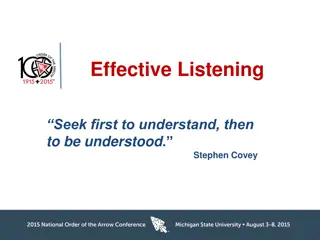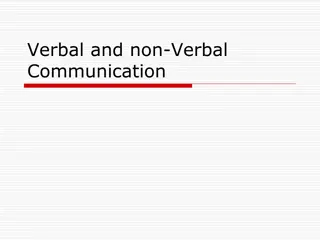Enhancing Listening Skills for Better Communication
The importance of hearing in the listening process, ways to influence the hearing process, and the complexity of auditory processes. Discover daily opportunities for appreciative listening and understand the mechanics of hearing, characteristics of sound, attention, and key terms related to listening. Learn about thought speed differentials, principles of vocalized listening, and signs of listening anxiety. Enhance your ability to listen effectively and improve communication outcomes.
Download Presentation

Please find below an Image/Link to download the presentation.
The content on the website is provided AS IS for your information and personal use only. It may not be sold, licensed, or shared on other websites without obtaining consent from the author.If you encounter any issues during the download, it is possible that the publisher has removed the file from their server.
You are allowed to download the files provided on this website for personal or commercial use, subject to the condition that they are used lawfully. All files are the property of their respective owners.
The content on the website is provided AS IS for your information and personal use only. It may not be sold, licensed, or shared on other websites without obtaining consent from the author.
E N D
Presentation Transcript
Listening: Attitudes, Principles, & Skills Chapter 3 Objectives After completing this chapter, you will become more aware of: the importance of hearing to the listening process The ways in which you can influence the hearing process The complexity of the processes associated with hearing The types of research that are being conducted on the hearing process The daily opportunities for appreciative listening
Mechanics of Hearing Reception of sound waves Perception of sound in the brain Auditory association
Characteristics of Sound Repetition Change Novelty Intensity
Attention Attention is a selective process that controls our awareness of events in the environment. Some suggest that your attention span is only around 7 seconds! If you don t pay attention to something, it s as if it never existed.
Terms You Should Know Perceptual readiness Selective attention Dichotic listening Shadowing Thought-speech differential
Thought Speed Differential You speak between 120 and 180 words per minute. The average person comprehends up to 400 or 500 words per minute. This difference gives listeners plenty of time to daydream, worry, or reflect on unrelated issues.
Principles of Vocalized Listening Repeat portions of the message to yourself silently Ask yourself questions concerning the ideas Relate the information to your personal needs and situation Repeat key ideas, make mental summaries Stay physically alert
Signs of Listening Anxiety Anxiety Depression Fatigue Frustration Irritability Worry Elevated blood pressure and heart rate Difficulty breathing Back and head pain sweating
Develop Appreciative Listening Identify specific things that give you pleasure Search for ways to expand the focus of your appreciative listening Develop a positive attitude and willingness to spend time listening appreciatively
